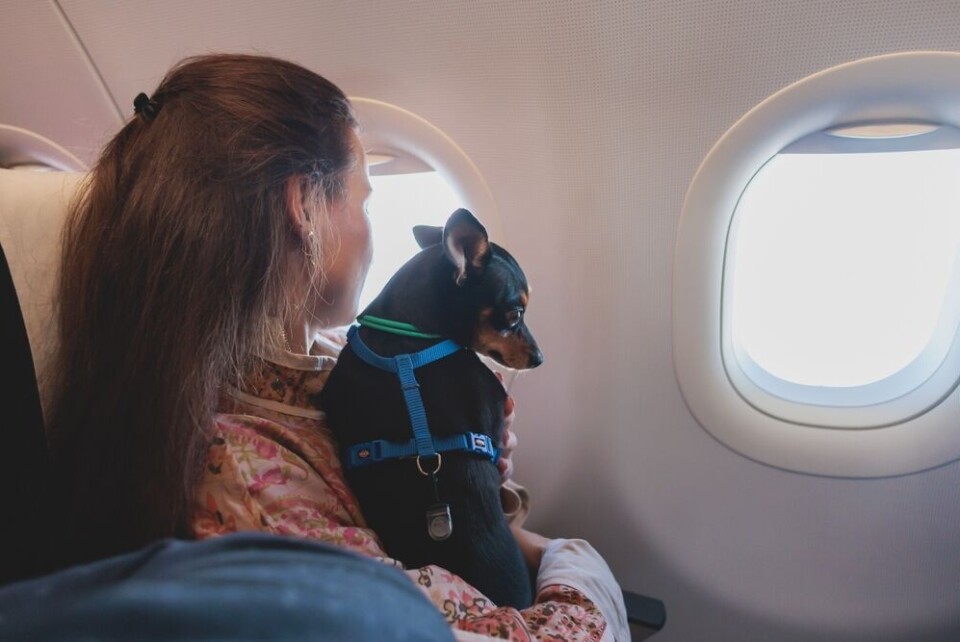-
Taking a lead from the US: doggy daycare booming in France
Daycare facilities are catering for both busy pet owners and tourists
-
Warnings after dog poisonings in south of France countryside
More than 20 dogs, including truffle hunting animals, have been poisoned by mysterious pellets
-
Le Rozier: a village with dramatic scenery along the Gorges du Tarn
Explore the pretty village in the Lozère department, popular with lovers of hiking and outdoor activities
How do I bring my pet into France from the US?
There are strict rules which must be followed

Reader Question: My family and I are moving to France from the US and we will need to bring our pets with us. What is the process?
The first thing to point out is that only certain animals class as ‘pets’ for this question, and there is a limit on the number of animals that can be brought into the EU on a non-commercial basis.
The animals classed as general ‘pets’ for customs purposes are dogs, cats, and ferrets – those that need to be identified on the I-CAD pet database in France.
Read more: What is I-CAD? France’s pet database explained
Other animals including rabbits, tropical fish, and birds for example have much stricter rules.
In addition, only five animals can be brought over as pets at a time, before customs officials class it as a commercial operation and different rules come into force.
Not all entry points have staff capable of authorising an animal’s entry into the country, meaning you may need to take a different route than originally planned.
You can find the list of approved entry points here.
All pets must be microchipped to enter France, however for animals with an identifying ‘tattoo’ from prior to July 3 2011, the tattoo alone will suffice.
Health documents are vital
The most important thing is to ensure your pets have the correct vaccinations to enter the EU.
This includes a valid rabies vaccination, or if the animal has been re-vaccinated/vaccinated for the first time, a 21-day gap between the vaccination and travelling.
Animals must have been microchipped before receiving a rabies vaccination, if not they must be re-vaccinated before travelling.
Read more: Puppy illegally imported to France found to have rabies
Your vet back in the United States should provide a valid health certificate, confirming the rabies vaccination as well as other health information about the animal.
They will probably know what the certificate should include, however an example can be found in Annex IV (page 34 onwards) of the EU’s regulations on pet travel here.
The documents need to be authorised by the USDA before travel can be made – this must be done within 10 days of the pet’s arrival in the EU.
You can find PDF versions of all the necessary documents on the USDA website here.
Does my animal need an EU pet passport to come from the USA to France?
Animals travelling between EU countries require a ‘pet passport’, completed by an official vet from any member state.
Pets entering the EU do not need such a passport, however it can be beneficial to get this for your pet after your arrival.
In addition to allowing you to travel within the EU with your pet, it can also be used each time you re-enter the bloc with your pet, instead of having to obtain another health certificate for the animal, as it contains all the health information required.
Note that you should only obtain this once in the EU, and that only an ‘authorised’ EU vet can complete certain sections, including the information relating to the pet’s rabies vaccination.
US vets cannot fill in this section, or the passport becomes ineligible.
Check the airline policy
Even if your animal fulfils all the requirements to enter the EU, the airline you are flying with may have its own rules.
These can include whether pets are transported in the hold or can be taken directly with you, and whether pets must take tranquilising medication first.
Most airlines will accept you bringing your pet but you will have to inform them in advance.
Related articles
Can I bring prescription pet food into France?
Pet travel: Can I take my dog or cat with me on a train in France?
























